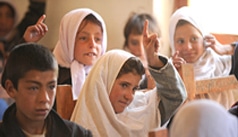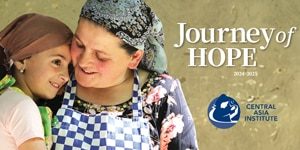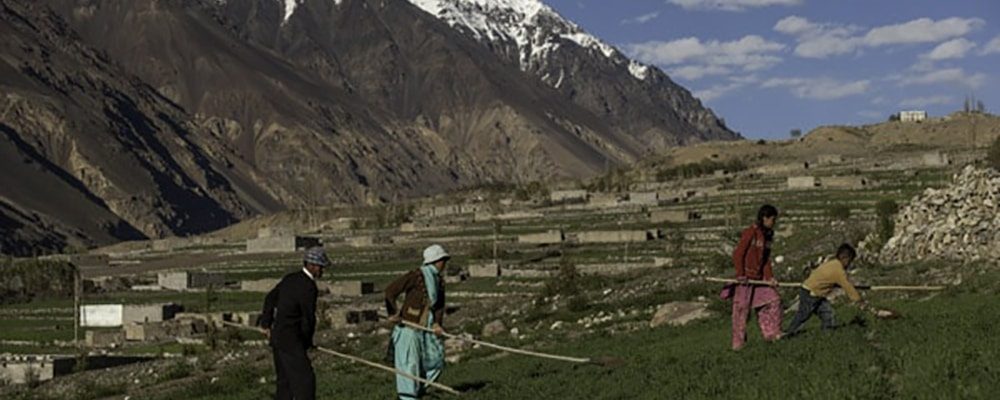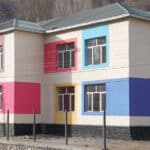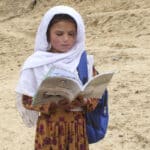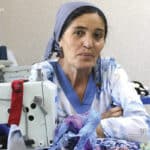The Green Revolution in Pakistan
In the Punjab province of Pakistan, resting in the shadows of the mountains in Kashmir, the small village of Nindowal is recovering from an agricultural revolution. Five decades ago the promise of prosperity and fortune lured subsistence farmers to abandon centuries old agriculture practices in favor of new, high yield wheat crops. These commercial farming techniques are not sustainable, and the village is struggling with eroding topsoil and environmental devastation.
Asif Chaudhry, CAI board member and Ph.D. in Ag-Economics, grew up in Nindowal in the 1950’s and 60’s and remembers the rhythm of the family farm. “Our area was dependent on rainwater for crops and we grew a certain variety of wheat that was best for the region. We called it desi wheat,” Asif remembers.
Most of the families in Nindowal owned three to ten acre farms and grew a variety of crops including wheat, millet, chickpeas, barley and sugarcane. Not only did they sell their surplus crops to make a living, but they used them to barter and trade for work or supplies. They raised livestock such as cows for fresh milk and oxen to plow the fields. The topsoil was rich and the rotation of crops helped maintain nutrients and balance the health of the soil.
Asif remembers the day his uncles brought home the new variety of wheat, Mexi Pak, that replaced the traditional wheat and shifted the village from subsistence to commercial farming. “It was supposed to bring twice the yield of the other wheat with less water,” Asif says. “They quickly realized it required chemicals to produce those big yields.”
“The first impacts were very visible,” recalls Asif. “The livestock industry faded away as people began to use tractors for harvest. As the topsoil eroded people found they couldn’t grow the millet, sugar cane, or other crops.”
The small stream that flowed from the mountains of Kashmir through the village grew wider and flooded, carrying the remaining topsoil away from the farms. Tumbleweeds rolled across barren, chemical treated fields for the first time. Farmland that once supported several varieties of grains with only rainwater now demanded an endless supply of chemicals to produce Mexi Pak wheat.
“When we went through this transition of traditional to commercial farming we wanted to make life better, but it didn’t work out that way,” says Asif.
Sustainability Is The Way Forward
People in the village now understand flooding, drought, and damage to farmland are directly related to decades of chemical use and the loss of traditional crop rotation.
“As the next generation has access to schools and becomes educated, they are realizing the need for conservation in these areas,” Asif explains. “Through education they see the conservation effort must grow. They are asking: how much change do we need?”
Asif explains that the villages cannot return to the traditional subsistence farming. It is up to the next generation to develop new sustainable techniques through education. Students like Kahlida, one of CAI’s scholarship students, are working hard to discover and establish sustainable farming practices that will help villages like Nindowal recover and prosper.

Kahlida grew up helping her family grow crops and raise animals in Pakistan’s Hunza Valley. Like Asif, she lived the transition from subsistence to commercial farming. It is not sustainable. This experience inspired her decision to pursue an advanced degree in agricultural sciences at Karakoram International University in Gilgit.
“I can help our society improve,” she said. “When I get done with my BSc honors program, it is my dream to go to a developed country … and learn advanced technology and technique so I could return home and influence the agriculture of my own region.”
Kahlida will not only be the first educated woman in her family, but she will become one of only a handful of women in this field. She is determined to use her CAI scholarship to help farming communities in Pakistan adapt sustainable farming techniques.
Asif has hope for Nindowal to recover though he knows it will never again be the subsistence community thriving on a barter system. It’s students like Kahlida who will use education to bridge the gap between sustainable agriculture that works with the land and the new commercial agriculture economy. Kahlida’s education will make this possible.
